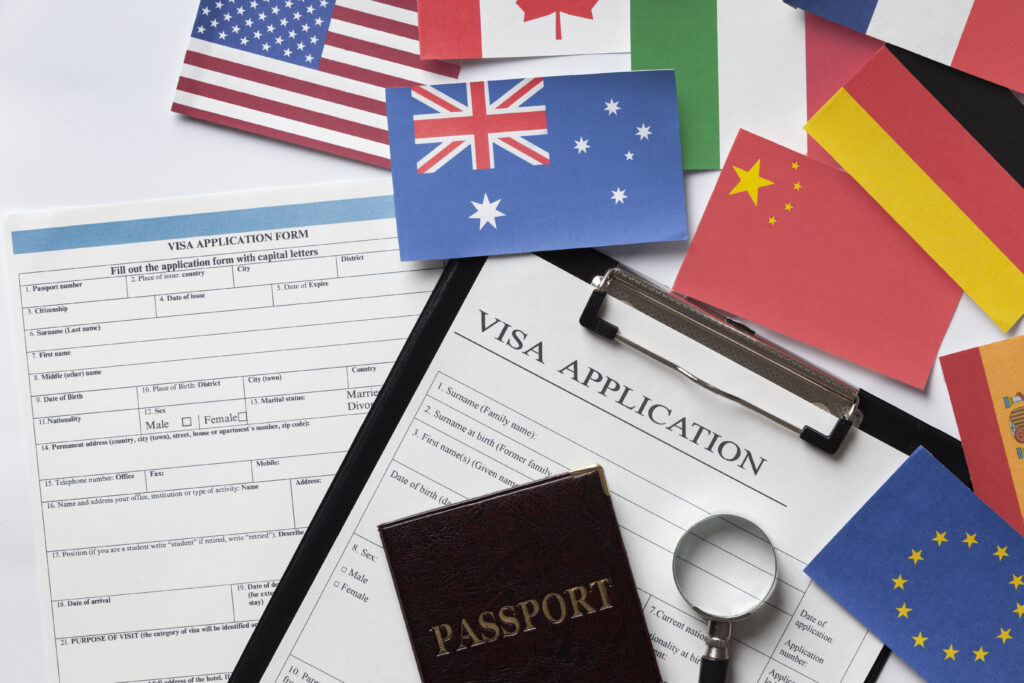
Stantorch Travels: Your Travel Partner
Are you dreaming of experiencing the vibrant energy of New York, the stunning coastline of California, or the breathtaking landscapes of Arizona? Well, before you pack your bags for the United States, there’s one major step to conquer: the visa interview. Stantorch Travels has put together a comprehensive guide on how to pass your American visa interview with confidence. Whether it’s for tourism, studies, work, or a family visit, here’s how you can ensure a smooth interview experience at the American consulate.

1. Understand Your Visa Type
First, make sure you’ve chosen the right type of visa for your travel purpose. Each type of visa comes with specific requirements and intentions. Here’s a quick overview of common U.S. visa types:
- B-2 Tourist Visa: Perfect if you’re visiting the U.S. for leisure, tourism, or to visit friends and family.
- F-1 Student Visa: Required for international students attending academic or language programs in the U.S.
- B-1 Business Visa: For short business trips, attending conferences, or professional meetings.
- H-1B Work Visa: Granted to qualified professionals with U.S.-based job offers.
For each visa type, understand the consular officer’s primary concern. For example, in the case of a tourist visa, they want to be certain that your primary intent is tourism, not immigration.
2. Complete All Necessary Documentation
Preparation is key to a successful interview. Here’s a checklist of essential documents you’ll need:
- Valid Passport: It should be valid for at least six months beyond your intended stay.
- DS-160 Form Confirmation: Complete the online form, print the confirmation page, and bring it along.
- Visa Application Payment Receipt: Proof of your payment is crucial.
- Appointment Confirmation: Print and bring your interview appointment confirmation.
- Supporting Documents: This could include bank statements, employment letters, invitation letters, admission letters (for students), or sponsorship affidavits.
For a tourism visa, supporting documents typically focus on proving your financial ability to support yourself and demonstrating ties to your home country.
3. Dress Appropriately for the Interview
First impressions matter. Dress smartly, just as you would for a job interview. Aim for business casual attire, and avoid anything flashy or overly casual. Consular officers often form opinions based on the way applicants present themselves, so polished and professional attire can work in your favour.
4. Know Your Travel Intentions Inside Out
The officer will ask questions to ensure your intentions are genuine and specific. Some typical questions include:
- Why do you want to travel to the U.S.?
- How long do you intend to stay?
- Do you have family members in the U.S.?
- What places do you plan to visit?
Prepare responses that show genuine interest in experiencing the U.S., be it for sightseeing, visiting friends, or professional reasons. Avoid sounding scripted; instead, be honest and authentic in sharing why this trip is important to you.
5. Be Confident, Clear, and Concise
Interviews usually last only a few minutes. During that time, it’s essential to answer questions confidently, without excessive elaboration. Some key tips:
- Speak Clearly: This helps the officer understand you better.
- Stay Concise: Avoid going off-topic or giving unnecessary details.
- Make Eye Contact: This shows confidence and trustworthiness.
- Avoid Hesitation: Have your answers ready so you can avoid sounding unsure.
6. Prove Ties to Your Home Country
A core requirement for many visa types is demonstrating strong ties to your home country. This is to reassure the consular officer that you plan to return after your stay in the U.S. Here’s how to do that:
- Employment: Bring an employment letter that states your position, length of service, and confirms your intent to return to your job.
- Family: If you have close family members in your home country, mention this in the interview.
- Property Ownership: Owning a house or property can help as it indicates a reason to return.
- Education: If you’re still a student, proof of enrolment can reinforce that you’re planning to return to complete your studies.
7. Address Financial Ability
The consular officer wants to be sure that you have the means to cover your travel expenses. Make sure you can demonstrate your ability to finance your trip with:
- Bank Statements: Recent statements showing adequate funds.
- Sponsorship Documents: If someone else is sponsoring your trip, bring a signed affidavit of support and your sponsor’s financial records.
- Employment or Business Income: Proof of steady income through payslips, employment letters, or business financials, if applicable.
8. Avoid Red Flags
Certain responses and behaviours can lead to suspicions. Avoid these common red flags:
- Vague Answers: Be specific about your travel plans, intentions, and ties to your home country.
- Hesitating or Inconsistencies: Stick to your story. Inconsistencies or hesitations can cast doubt on your credibility.
- Desperation: Avoid expressing extreme eagerness to stay in the U.S. This can imply hidden intentions.
- Lack of Preparation: If you’re unprepared, the officer may conclude that you’re not taking the process seriously.
9. Be Honest About Your Travel History
If you’ve visited countries with strict immigration controls, like the U.K. or Canada, mention these trips as they help strengthen your case. Likewise, be upfront if you’ve been denied a U.S. visa in the past. Consular officers have access to your travel and visa history, so honesty is the best approach here.
10. Don’t Be Discouraged by Previous Rejections
Visa rejections are not the end of the road. Many applicants reapply and eventually get approved. If you’ve been denied before, take time to understand the possible reasons, improve your application, and return with renewed confidence and additional documentation if needed.

In Summary:
Securing an American visa is achievable with the right preparation and mindset. Keep in mind these three essentials from Stantorch Travels: stay genuine, show that you intend to return to your home country, and prepare thoroughly. Approach your interview as an honest conversation, highlighting your excitement to explore the U.S. while showcasing your ties back home.
With Stantorch Travels by your side, you’re one step closer to making your American adventure a reality. And if the beautiful Canadian Rockies or bustling streets of Toronto are on your mind, we’re also here to assist with your Canadian visa process. Reach out to us for guidance, and soon you’ll be on your way to exploring North America in all its glory!
Author: Stanley Aguzie
